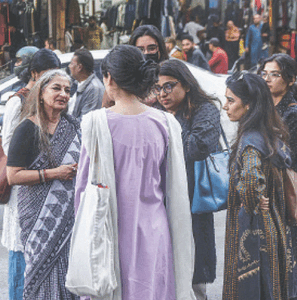
KARACHI: Justice Maqbool Baqar of the Supreme Court said on Saturday that a people-oriented judicial system was imperative for the stability and independence of judiciary and strengthening democracy.
The judiciary stood between the citizen and state as a bulwark against the excesses and misuse or abuse of power by the executive, he stated while addressing an event organised by the Sindh High Court Bar Association (SHCBA) on the premises of the high court.
“It is therefore absolutely essential that the judiciary must be free from executive pressure or influence, which has been secured by making elaborate provisions in the Constitution,” he added.
“Judges particularly in our part of the world need to have a keen knowledge of severe disparities and the volatility that underpins the ground realities of the society in which they are tasked to adjudicate. They cannot afford to be blind residents of the elite institutions; they should be sensitive to the struggle of the common man and aware and attuned to the humans that they are applying the law to,” he further said.
Judges cannot afford to be blind residents of elite institutions, remarks Justice Baqar
Justice Baqar was of the view that the human element was extremely important for the judiciary to be relevant. It was imperative for the judiciary to command public trust and confidence, he added.
“But it is necessary to remind ourselves that the concept of independence of the judiciary is not limited only to independence from executive pressure or influence. It has many dimensions, namely fearlessness of other power centres, economic or political and freedom from prejudices acquired and nourished by the class of which the judges belong,” he said.
The apex court judge, who is set to retire next year, further said that though independence of the judiciary as an institution was a vital safeguard, but that alone was not sufficient against arbitrary whimsical and unruly conduct of those wielding power. But for establishing and enforcing the rule of law, it was absolutely imperative that individual judges were free from unwarranted interference in their decision making, he added.
The independence of judiciary, he said, was not only rendered meaningless and redundant but it became counterproductive without the judge being impartial. The judiciary was essentially required to be independent as well as impartial and both those virtues needed to be intertwined, he added.
Justice Baqar further said, “It is also crucial to mention here that it would be devastating if the tenure of office of a judge is in reality made dependent on the acceptability of his judgments by those wielding power, and the prospects of further elevation of a judge are jeopardized by the reasons of his judgements not being well received by certain quarters”.
The president of SHCBA, Barrister Salahuddin Ahmed, also spoke on the occasion.
Published in Dawn, October 17th, 2021


































